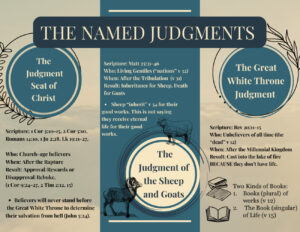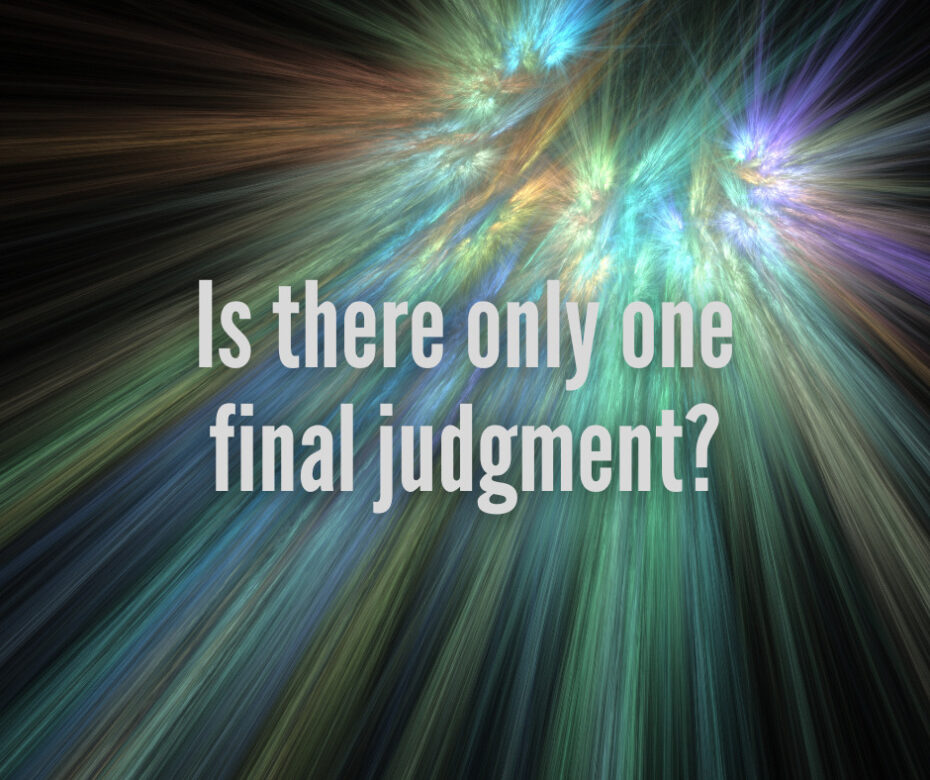The image of Saint Peter standing at the pearly gates testing people in order to determine whether or not they enter heaven is iconic in Western culture. For years it has been perpetuated through jokes, television shows, and even cartoons such as The Far Side. The depiction of a long line of people waiting in the clouds to see who will get into heaven is so normalized that many people probably think that is really how it will be. However, there are many unbiblical concepts in these images. First, in John 5:22, the Lord makes this important statement: “For the Father judges no one, but has committed all judgment to the Son.”
Peter will not judge the world. It is Jesus Christ to whom the Father has given this authority.
This cultural emphasis on Peter and the pearly gates offers another misconception. These depictions often teach that eternal salvation is obtained by good works. However, the Bible is clear that salvation is not by works, but by grace through faith (Eph 2:8-9; Rom 4:1-5).
Another misconception from these images is that there is but one final judgment, during which everyone will stand before the Lord to determine his or her eternal destiny. This is also incorrect. The Bible speaks of several judgments–involving different people and outcomes–that will take place when the Lord returns. This blog will unpack three of these judgments, giving special attention to who will be judged, when each judgment takes place, and the results of each judgment. These three judgments could be classified as the “named judgments,” because all three are specifically described in the Scriptures and have names associated with them.
- The Great White Throne
The first judgment the Scriptures describe is The Great White Throne Judgment. It is found in Rev 20:11-15. We are told that those who appear before the Lord in this judgment are the dead (v 12). This judgment does not include those who are alive in Christ. Those born again by believing in Jesus for eternal life will never stand before the Lord at this judgment. Jesus says in John 5:24 that anyone who believes in Him “shall not come into judgment, but has passed from death into life.” In other words, those who have believed in Jesus can be comforted knowing that their eternal salvation has already taken place and that they shall never be judged at the Great White Throne. This judgment is only for unbelievers and will occur after the Lord’s millennial reign on the earth (Rev 20:4-10). The result of this judgment is that those who are not found in the Book of Life will be cast into the lake of fire (Rev 20:15).
- The Judgment Seat of Christ (Bema)
The second named judgment is The Judgment Seat of Christ (1 Cor 3:10-15; 2 Cor 5:10; Rom 14:10; 1 Jn 2:28; Lk 19:11-27). It is also known as the Bema. Paul writes about it in 2 Cor 5:10: “For we must all appear before the judgment seat of Christ, that each one may receive the things done in the body, according to what he has done, whether good or bad.”
This is a judgment for church-age believers. Paul includes himself (we) in this judgment. This is different from the Great White Throne, which is for unbelievers. The Bema does not determine the salvation of the believer; rather, it will determine the rewards received due to good or bad works. The result of this judgment will be either approval and reward or disapproval and rebuke (1 Cor 9:24-27; 2 Tim 2:12,15). In addition, this judgment will take place at a different time. While the Great White Throne occurs after the millennial kingdom, the Bema will occur after the Church’s Rapture and before the Millennium.
- The Judgment of the Sheep and Goats
The third judgment named in the Scriptures is The Judgment of the Sheep and Goats. It is found in Matt 25:31-46. Unlike The Great White Throne Judgment and the Bema, this judgment involves both believers and unbelievers. It is unique in that it is only for those who are alive at the end of the Tribulation (v 31). In addition, it involves only Gentiles (v 32 “nations”). The result of this judgment is that the sheep inherit the kingdom (v 34), while the goats are sent to Hades to await their final judgment following the Millennium. The sheep do not receive eternal life due to their good works. Eternal life is a gift freely given to those who believe in Jesus (Eph 2:8-9; John 3:16; 4:10). The sheep are told that, due to their good works, they inherit the kingdom. There is a difference between entering the kingdom and inheriting it. Inheriting the kingdom speaks of rewards. It deals with the privilege of reigning with the King.
In a later blog, we will see three unnamed judgments that also occur when the Lord returns.


